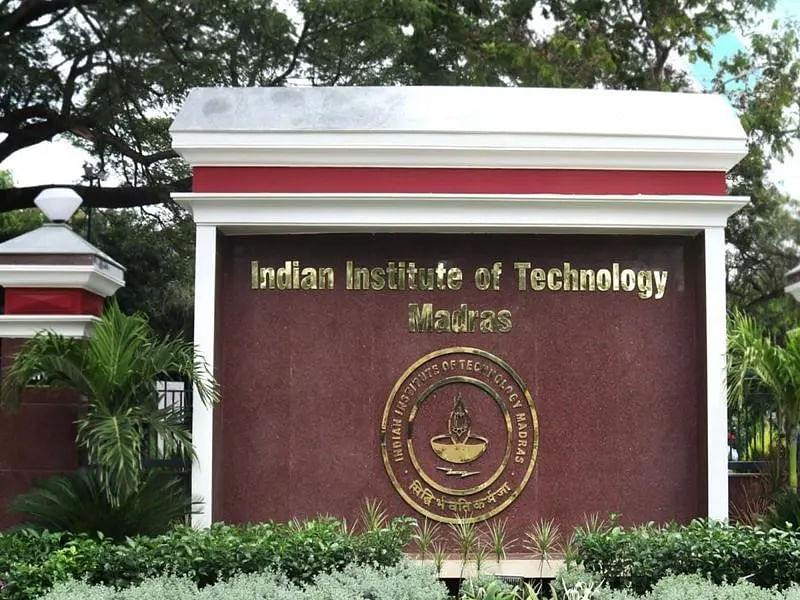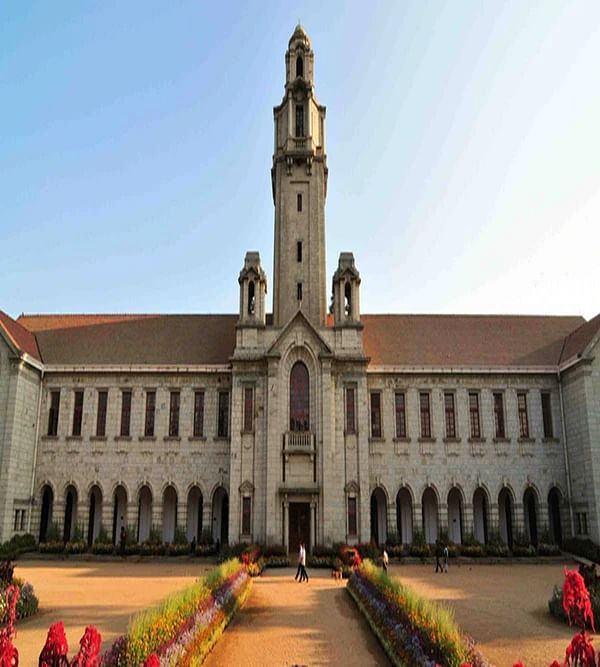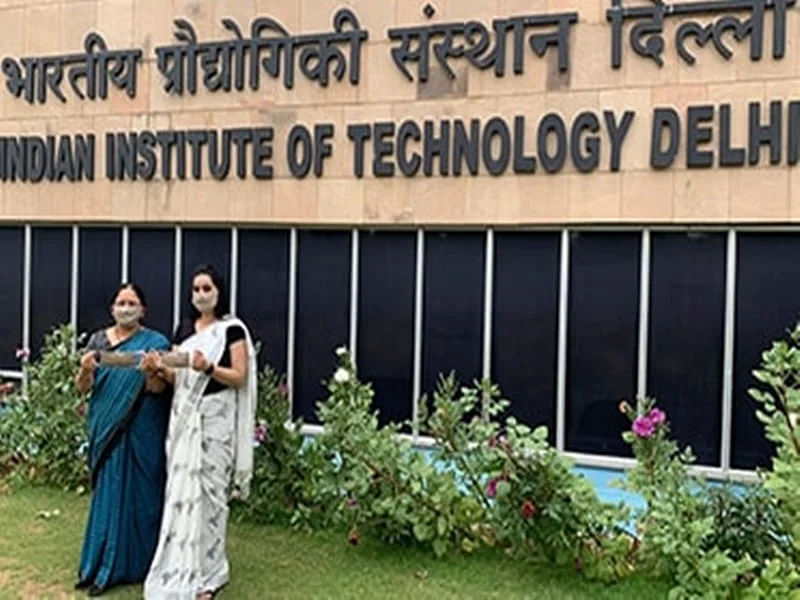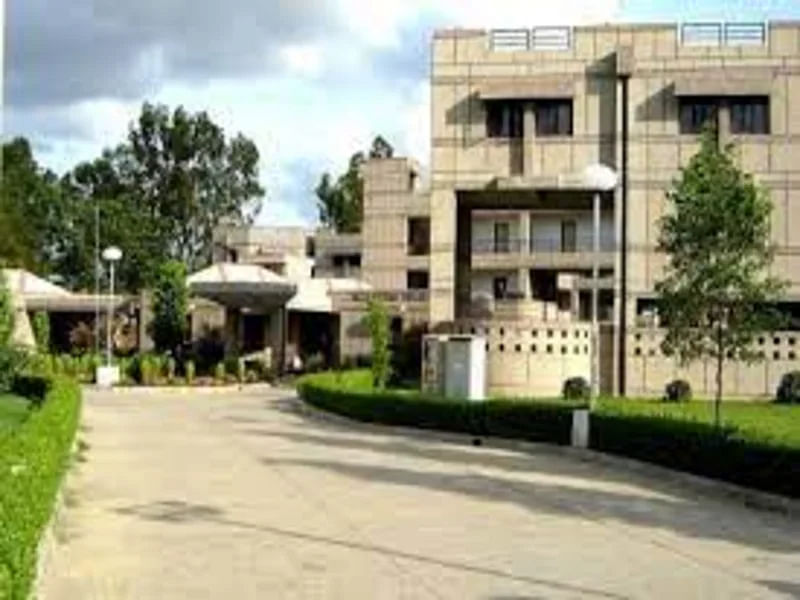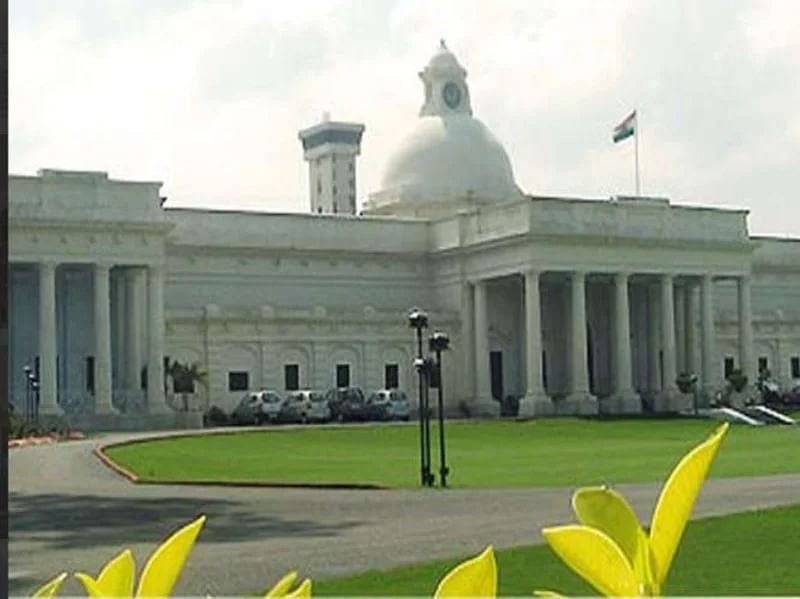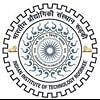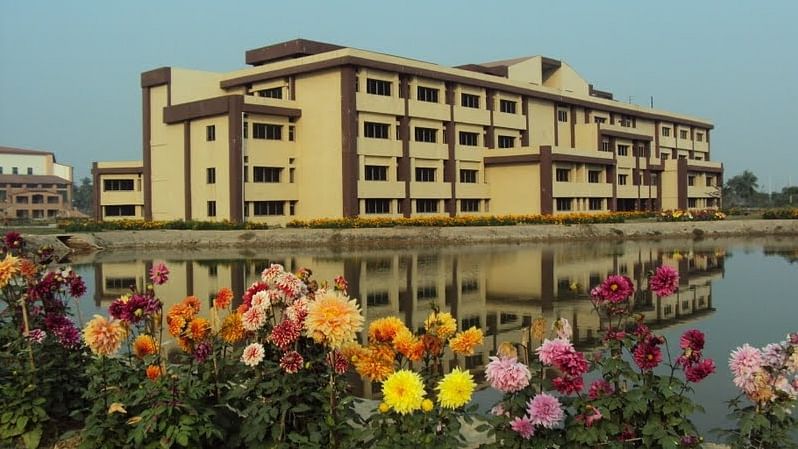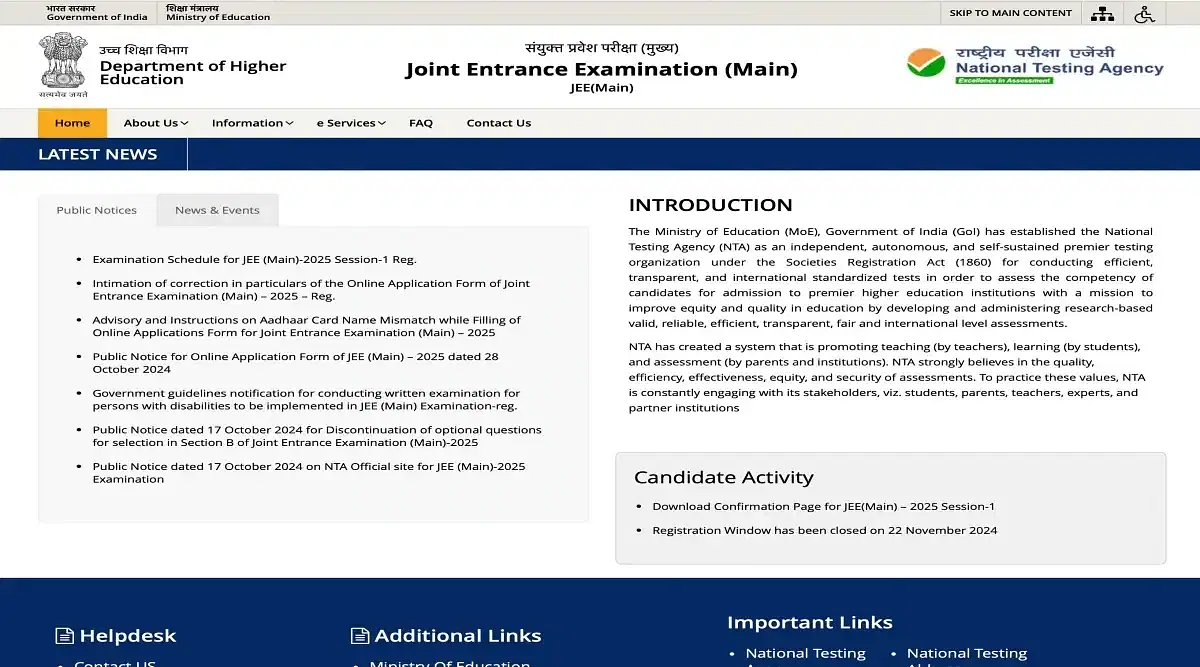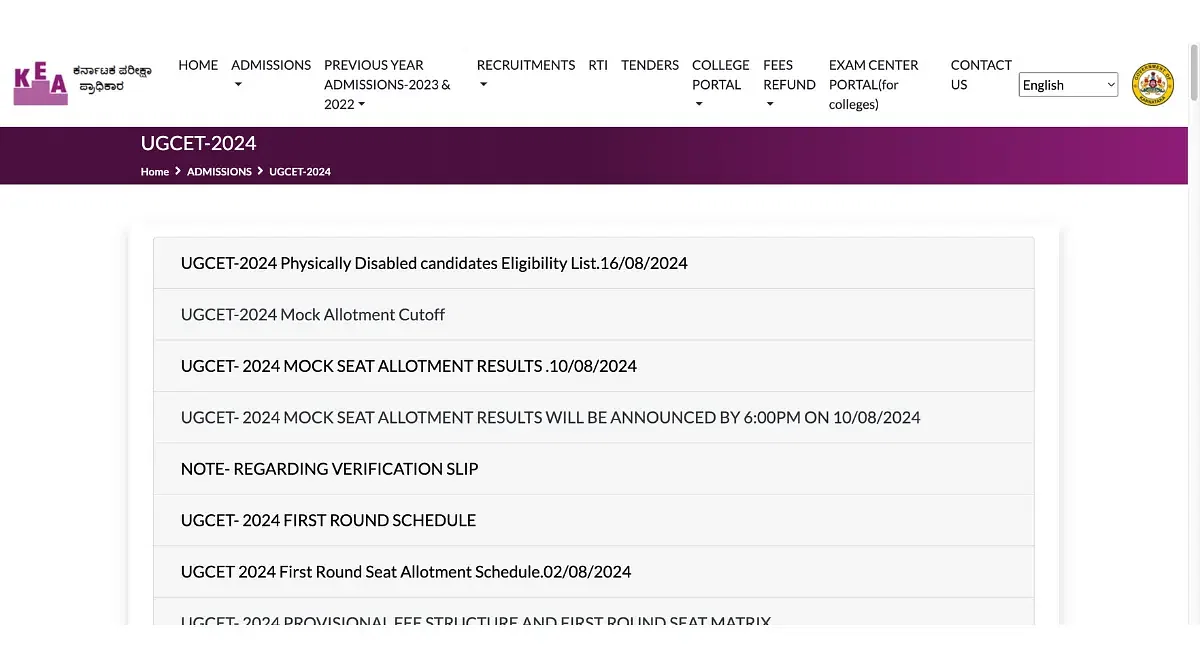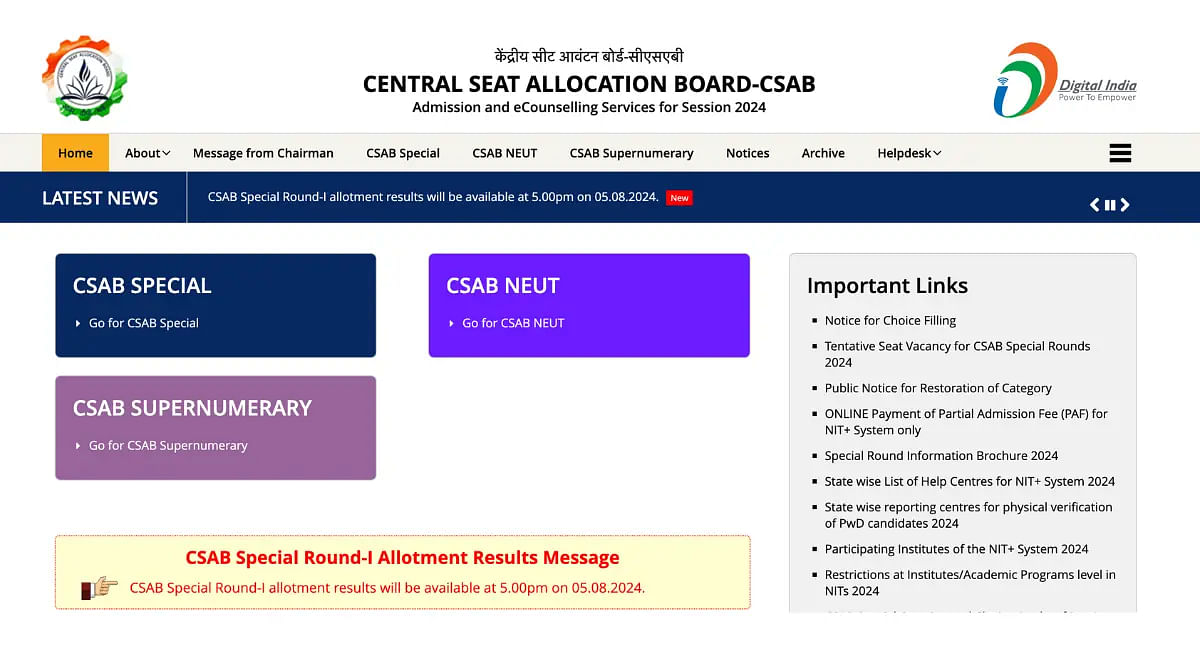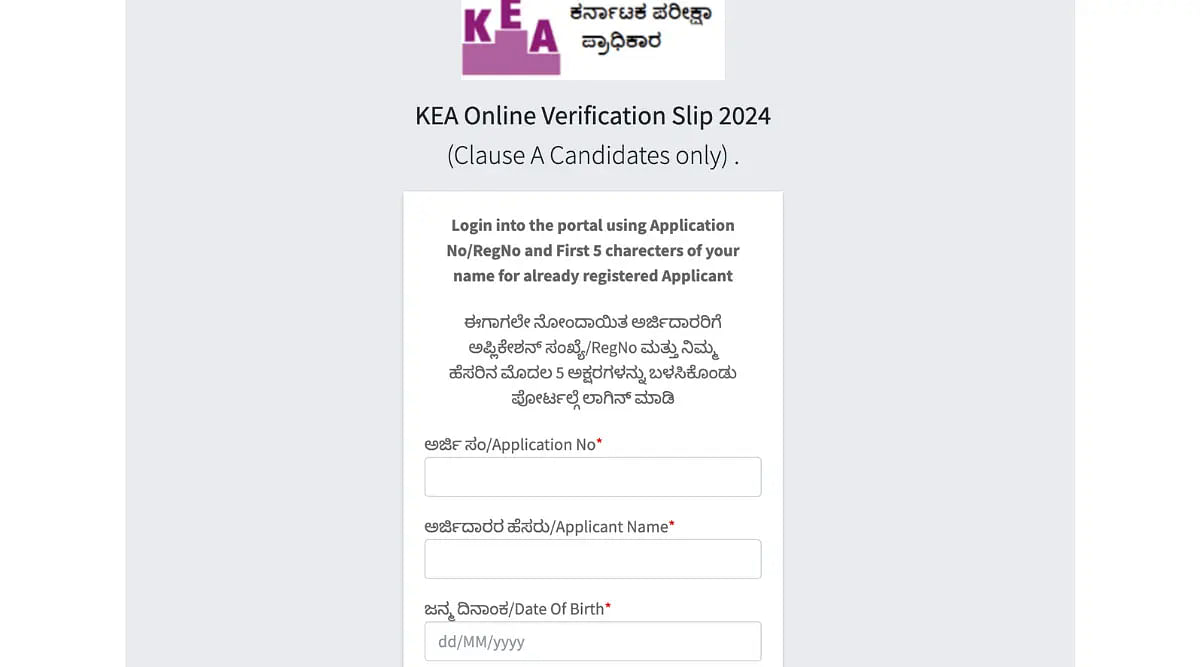B.Tech Subjects and Syllabus
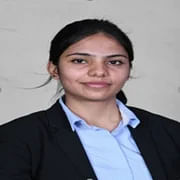
B.Tech subjects focus on understanding engineering concepts related to Programming, Engineering Physics, Mathematics, Engineering Drawing, Electronics, Chemistry, and more. The B.Tech foundational subjects such as basic engineering and science topics provide students a solid base for understanding complex engineering concepts. The advanced B.Tech subjects engage with core and elective courses specific to their selected specialization.
The common BTech core subjects include Engineering Mechanics, Material Science, Thermodynamics, English, Engineering Graphics, and more. BTech elective subjects also vary as per the specialization selected by the students. Finite Element Analysis, Robotics, and Automation, Pavement Design, Cloud Computing, Data Mining, Data Analytics, Internet of Things, etc., are a few of the elective subjects in BTech course.
Table of Content
- B.Tech Subjects
- Semester Wise B.Tech Syllabus and Subjects
- Specialisation Wise BTech Syllabus and Subjects
B.Tech Subjects
B.Tech subjects provide fundamental engineering concepts like mathematics, physical phenomena, engineering drawing, coding basics, etc., combined with specialized fields of study. BTech course aims to make graduates apply engineering concepts to develop technically sound solutions in any specialized domain and enhance productivity. Below listed are a few core and elective subjects covered in BTech syllabus:
B.Tech Core Subjects
Listed below are some of the core B.Tech subjects that the students study in first year as common subjects along with topics covered in each subject:
| BTech Core Subjects | Topics Covered |
| Mathematics | Calculus, Differential equations, Linear algebra, Discrete mathematics, Numerical methods, Complex analysis, Vector calculus, Partial differential equations, etc. |
| Engineering Physics | Mechanics, Thermodynamics, Optics, Waves and vibrations, Electromagnetism, Solid-state physics, Nuclear physics, etc. |
| Basic Electrical Engineering | Electric circuits, AC and DC circuit analysis, Inductance and capacitance, Electrical machines, Power systems, Magnetic circuits, Measurement and instrumentation, etc. |
| Computer Programming | Programming fundamentals, Functions and procedures, Data types and structures, Algorithms and problem-solving, Debugging techniques, Software development life cycle, etc. |
| Engineering Mechanics | Statics, Dynamics, Equilibrium of particles and rigid bodies, Centroids and centers of gravity, Moments of inertia, Analysis of structures, Fluid statics, Mechanical vibrations, etc. |
| English | Grammar and syntax, Writing skills, Communication skills, Reading comprehension, Technical writing, Oral presentation, Business communication, etc. |
| Basic Electronics | Ohm's Law, Kirchhoff's Laws, Circuit analysis techniques, Diodes and transistors, Amplifiers, Operational amplifiers, Semiconductor devices, Analog electronics, etc. |
| BTech Admission Process | BTech Fees in India |
B.Tech Elective Subjects
An elective course is a subject from the block of electives that must be taken within the volume established in the curriculum. The elective subjects in BTech are listed below as per the specialization:
| Specialization | BTech Elective Subjects | Topics Covered |
|
Civil Engineering |
|
Satellite Imagery, Project Planning, Cost Estimation, Groundwater Flow, Fluid Flow, Turbulence, Seismic Design, Structural Dynamics, and more. |
| Mechanical Engineering |
|
Mesh Generation, Robot Kinematics, Vehicle Dynamics, Lean Manufacturing, Structural Analysis, and more. |
| Electrical Engineering |
|
Optical Fibers, Sensor Types, Image Processing, Object Detection, Grid Modernization, Renewable Integration, Microcontrollers, Embedded Programming, and more. |
| Information Technology |
|
Wireless Communication, Mobile OS, Virtualization, Cloud Services, Rendering Techniques, 3D Modeling, Neural Networks, Fuzzy Logic, and more. |
| Computer Science Engineering |
|
Python, Perl, XML Parsing, Encryption Algorithms, Network Protocols, Machine Learning, Natural Language Processing, and more. |
| B.E vs B.Tech | B.Sc Vs B.Tech |
B.Tech Laboratory Subjects
Along with the core and elective subjects, there are also many laboratory subjects that the students can choose from as per their specialization. The laboratory subjects in BTech are listed below.
| BTech Laboratory Subjects | Specialization | Topics Covered |
| Hydraulics | Civil Engineering | Fluid properties, Flow measurement, Hydraulic pumps, Open channel flow, Water hammer, Pipe network analysis, etc. |
| Thermodynamics | Mechanical Engineering | Heat transfer, Thermodynamic cycles, Combustion analysis, Steam tables, Gas laws, Refrigeration systems, etc. |
| Engineering Mechanics | Civil/Mechanical Engineering | Statics, Dynamics, Equilibrium of rigid bodies, Trusses, Centroids, Moments of inertia, etc. |
| Programming | Computer Science/IT | Data structures, Algorithms, Programming languages (e.g., Python, Java), Code debugging, Software development, etc. |
| Basic Electronics | Electrical Engineering | Ohm's Law, Diode circuits, Transistors, Amplifiers, Oscillators, Logic gates, Electronic components, etc. |
| Power Electronics | Electrical Engineering | Power semiconductor devices, AC-DC converters, DC-DC converters, Inverters, Power factor correction, etc. |
| Microcontrollers | Electronics | Microcontroller architecture, Programming (Assembly/C), Interfacing, Embedded system design, Sensors and actuators, etc. |
| BCA Vs B.Tech | BBA Vs B.Tech |
Semester Wise B.Tech Syllabus and Subjects
B.Tech's first year syllabus aims to provide the students with all the vital knowledge and core subjects. B.Tech syllabus remains common for semester 1 and semester 2 across all specializations. From semester 3 till semester 8, the syllabus and subjects vary based on their specialization and field of study.
B.Tech First Year Syllabus
The B.Tech first year syllabus includes topics such as Engineering Physics, Mathematics, Engineering Mechanics, etc. The list of common B.Tech subjects is detailed in the table below.
| Semester I | Semester II |
| Engineering Physics | Engineering Chemistry |
| Mathematics - I | Mathematics - II |
| Engineering Physics Lab | Engineering Mechanics |
| EG Lab | Basic Electrical Engineering / Basic Electronics Engineering |
| Engineering Graphics | Computer Programming |
| Basic Electronics | Programming Lab |
| Environmental Studies | Engineering Mechanics Lab |
| English | - |
Specialisation Wise BTech Syllabus and Subjects
BTech offers several specializations and the core subjects differ for each stream. Candidates get to pursue these subjects from semester 3 to semester 8. Detailed below are some of the popular specializations and their corresponding course structure.
| BTech Specialization List | Subjects Covered |
| Mechanical Engineering |
Thermodynamics Fluid Engineering Machine Design Materials Science Automobile Design Special Machines |
| Civil Engineering |
Fluid Mechanics Strength of Materials Geotechnical Engineering Concrete Technology Environmental Engineering Computer-Aided Design Hydraulics Machinery Solid Mechanics Irrigation and Hydraulics |
| Computer Science Engineering |
Computer Programming Data Structures & Algorithms Object-Oriented Programming using C ++ Design and Analysis of Algorithms Database Management Systems Computer Networks and Circuit Theory Microprocessor & Computer Architecture Operating Systems |
| Electrical and Electronics Engineering |
Analog Electronics Circuits and Systems Power Systems Microcontrollers Power Electronics Transmission and Distribution Data Structures and Algorithms |
| Electronics and Communication Engineering |
Analog Circuits Digital Signal Processing Communication Protocols Linear Integrated Circuits Power Electronics Digital Electronics Microprocessors |
| Information Technology |
Introduction to Information Technology Computer Programming Database Management Systems (DBMS) Web Development Computer Networks Information Systems Machine Learning (ML) Human-Computer Interaction (HCI) |
Other BTech Specialisation Syllabus and Subjects:
BTech Chemical Engineering Subjects and Syllabus
BTech Medical Electronics Subjects and Syllabus
BTech Applied Electronics and Instrumentation Subjects and Syllabus
BTech Industrial Engineering and Management Subjects and Syllabus
BTech Biotechnology Subjects and Syllabus
BTech Food Technology Subjects and Syllabus
BTech Aerospace Engineering Subjects and Syllabus
BTech Marine Engineering Subjects and Syllabus
BTech Biomedical Engineering Subjects and Syllabus
BTech Petroleum Engineering Subjects and Syllabus
BTech Engineering Physics Subjects and Syllabus
BTech Robotics Engineering Subjects and Syllabus
BTech Architecture Engineering Subjects and Syllabus
BTech Mining Engineering Subjects and Syllabus
BTech Food Science and Technology Subjects and Syllabus
BTech Textile Engineering Subjects and Syllabus
BTech Electronics and Instrumentation Engineering Subjects and Syllabus
BTech Plastic Engineering Subjects and Syllabus
Read more: BTech Specialization List
IIT B.Tech Syllabus
The IITs offer a comprehensive B.Tech curriculum designed to provide a strong foundation in engineering principles emphasizing on innovation and research. The syllabus spans eight semesters over four years and focuses on topics such as Engineering Physics, Engineering Mechanics, Programming, and more.
The B.Tech syllabus also focuses on laboratory work, projects, internships, and industry interaction to enable students to apply their theoretical knowledge to practical applications. The B.Tech syllabus offered by the top IITs is detailed in the sections below.
IIT Madras BTech Syllabus
BTech courses are offered under various specializations in IIT Madras and the syllabus and subjects vary as per the specializations. Listed below is the BTech syllabus for the two specializations offered at IIT Madras:
IIT Madras BTech CSE Syllabus
IIT Madras BTech Computer Science Engineering syllabus focuses on subjects such as Physics, Chemistry, Engineering Mechanics, etc along with practical subjects and workshops. Given below is the semester-wise breakdown of the IIT Madras BTech CSE Syllabus:
|
Semester-I |
Semester-II |
|
Functions of Several Variables |
Series and Matrices |
|
Physics-I |
Physics-II |
|
Physics Lab-I |
Discrete Mathematics for CS |
|
Engineering Mechanics |
Engineering Drawings |
|
Problem-Solving using Computers |
Basic Electrical Engineering |
|
Chemistry-I |
Chemistry Lab |
|
Life Skills-I |
Life Skills II |
|
Ecology and Environment |
- |
|
Semester-III |
Semester-IV |
|
Basic Graph Theory |
Languages, Machines, and Computations |
|
Programming and Data Structures |
Designs and Analysis of Algorithms |
|
Programming and Data Structures Lab |
Computer Organization and Architecture |
|
Foundations of Computer Systems Design |
Computer Organization and Architecture Lab |
|
Foundations of Computer Systems Design Lab |
Object-Oriented Algorithms Implementation and Analysis Lab |
|
- |
Probability, Stochastic Process and Statistics |
|
Semester-V |
Semester-VI |
|
Paradigms of Programming |
Life Sciences |
|
Operating Systems |
- |
|
Compiler Design |
- |
|
Semester-VII |
Semester-VIII |
|
Humanities Elective 2 |
Professional Ethics |
|
- |
Humanities Elective 3 |
IIT Delhi BTech CSE Syllabus
The IIT Delhi B.Tech CSE syllabus deals with important topics such as Data Structures, Programming Languages, Operating Systems, Computer Networks, and more. Listed below is the B.Tech CSE syllabus offered at IIT Delhi.
|
Semester-I |
Semester-II |
|
Introduction to Computer Science & Engineering |
Data Structures |
|
Introduction to Computer Programming |
Fundamentals of Electrical Engineering |
|
Graphic Science |
Manufacturing Practices |
|
Introduction to Analysis & Differential Equations |
Introduction to Algebra and Matrix Analysis |
|
Field of Waves |
Physical Chemistry Concepts and Applications |
|
Physics Laboratory |
Chemistry Laboratory |
|
Semester-III |
Semester-IV |
|
Discrete Mathematical Structures |
Programming Languages |
|
Computer Architecture |
Introduction to Probability Theory and Stochastic Processes |
|
Design Practices in Computer Science |
Physics of Materials |
|
Digital Electronic Circuits |
Departmental Elective-I |
|
Electronics Laboratory-I |
- |
|
Engineering Mechanics |
- |
|
Semester-V |
Semester-VI |
|
Analysis and Design of Algorithms |
Operating Systems |
|
Signals and Systems |
Departmental Elective-III |
|
Mini Project |
Departmental Elective-IV |
|
Open Elective-I |
Open Elective-III |
|
Open Elective-II |
Open Elective-IV |
|
Semester-VII |
Semester-VIII |
|
Colloquium |
Major Project Part 2 |
|
Major Project Part 1 |
Departmental Elective-VI |
|
Computer Networks |
Open Elective-VII |
|
Departmental Elective-V |
Open Elective-VIII |
|
Open Elective-V |
- |
|
Open Elective-VI |
- |
IIT Delhi BTech Syllabus
IIT Delhi offers various B.Tech specializations from which students can choose based on their area of interest. The BTech syllabus and subjects differ depending on the chosen field of specialization. The B.Tech syllabus of the top two specializations offered at IIT Delhi is provided below.
IIT Delhi BTech CSE Syllabus
The IIT Delhi B.Tech CSE syllabus deals with important topics such as Data Structures, Programming Languages, Operating Systems, Computer Networks, and more. Listed below is the B.Tech CSE syllabus offered at IIT Delhi.
|
Semester-I |
Semester-II |
|
Introduction to Computer Science & Engineering |
Data Structures |
|
Introduction to Computer Programming |
Fundamentals of Electrical Engineering |
|
Graphic Science |
Manufacturing Practices |
|
Introduction to Analysis & Differential Equations |
Introduction to Algebra and Matrix Analysis |
|
Field of Waves |
Physical Chemistry Concepts and Applications |
|
Physics Laboratory |
Chemistry Laboratory |
|
Semester-III |
Semester-IV |
|
Discrete Mathematical Structures |
Programming Languages |
|
Computer Architecture |
Introduction to Probability Theory and Stochastic Processes |
|
Design Practices in Computer Science |
Physics of Materials |
|
Digital Electronic Circuits |
Departmental Elective-I |
|
Electronics Laboratory-I |
- |
|
Engineering Mechanics |
- |
|
Semester-V |
Semester-VI |
|
Analysis and Design of Algorithms |
Operating Systems |
|
Signals and Systems |
Departmental Elective-III |
|
Mini Project |
Departmental Elective-IV |
|
Open Elective-I |
Open Elective-III |
|
Open Elective-II |
Open Elective-IV |
|
Semester-VII |
Semester-VIII |
|
Colloquium |
Major Project Part 2 |
|
Major Project Part 1 |
Departmental Elective-VI |
|
Computer Networks |
Open Elective-VII |
|
Departmental Elective-V |
Open Elective-VIII |
|
Open Elective-V |
- |
|
Open Elective-VI |
- |
IIT Delhi BTech Chemical Engineering Syllabus
The B.Tech Chemical Engineering syllabus in IIT Delhi focuses on topics such as Chemical Reaction Engineering, Heat Transfer, Fluid Mechanics, and more. The semester wise B.Tech Chemical Engineering syllabus offered at IIT Delhi is provided in the table below.
|
Semester-I |
Semester-II |
|
Introduction to Electrical Engineering |
Engineering Mechanics |
|
Introduction to Engineering Visualization |
Introduction to Computer Science |
|
Electromagnetism & Quantum Mechanics |
Introduction to Chemistry |
|
Calculus |
Linear Algebra & Differential Equations |
|
Product Realization through Manufacturing |
Chemistry Lab |
|
Electrical Engineering Lab |
- |
|
Physics Lab |
- |
|
Semester-III |
Semester-IV |
|
Transport Phenomena |
Chemical Engineering Thermodynamics |
|
Material and Energy Balances |
Chemical Reaction Engineering-I |
|
Numerical Methods in Chemical Engineering |
Fluid Mechanics for Chemical Engineers |
|
Applied Chemistry |
Heat Transfer for Chemical Engineers |
|
- |
Introductory Biology for Engineers |
|
- |
Introduction to Materials Science & Engineering |
|
Semester-V |
Semester-VI |
|
Mass Transfer-I |
Mass Transfer-II |
|
Chemical Reaction Engineering-II |
Departmental Elective-I |
|
Fluid-Particle Mechanics |
Introduction to Industrial Biotechnology |
|
Introduction to Materials for Chemical Engineering |
Chemical Process Technology and Economics |
|
Process Dynamics and Control |
Instrumentation and Automation |
|
Environmental Science |
Chemical Engineering Laboratory-II |
|
Chemical Engineering Laboratory-I |
- |
|
Semester-VII |
Semester-VIII |
|
Departmental Elective-II |
Departmental Elective-III |
|
Departmental Elective-II |
Departmental Elective-IV |
|
Chemical Engineering Laboratory-III |
- |
|
B.Tech Project |
- |
NIT B.Tech Syllabus
The NIT provides an extensive B.Tech program that blends fundamental and advanced engineering principles with practical experience. The NIT B.Tech syllabus is structured over eight semesters spanning four years. The first-year B.Tech syllabus focuses on basic science and engineering principles.
As the program progresses the B.Tech syllabus deals with advanced concepts and students can select areas of specialization based on their interests. The B.Tech syllabus offered by NITs is detailed in the sections below.
NIT Trichy BTech Syllabus
BTech syllabus at NIT varies from one specialization to another and the semester pattern is divided into 8 semesters for the duration of 4 years. Given below is the BTech syllabus for the top specialization offered at NITs:
NIT Trichy BTech CSE Syllabus
BTech CSE syllabus in NIT Tiruchirappalli focuses on equipping the students with knowledge and skills related to various topics such as Engineering Mathematics, Engineering Physics, Programming Languages, Data Structures, etc. Given below is the semester-wise BTech CSE syllabus at NIT Trichy:
|
Semester-I |
Semester-II |
|
Linear Algebra and Calculus |
Complex Analysis and Differential Equations |
|
Physics |
Chemistry |
|
Introduction to Computer Programming |
English for Communication |
|
Basics of Mechanical Engineering |
Discrete Structures |
|
Basics of Civil Engineering |
Essentials of Computer Science |
|
Engineering Practice |
Engineering Graphics |
|
Energy and Environmental Engineering |
Chemistry Lab |
|
Physics Lab |
English for Communication Lab |
|
Computer Programming Lab |
- |
|
Semester-III |
Semester-IV |
|
Probability and Operations Research |
Industrial Economics and Foreign Trades |
|
Principles of Programming Languages |
Formal Languages and Automata Theory |
|
Data Structures |
Design and Analysis of Algorithms |
|
Digital Systems Design |
Operating Systems |
|
Computer Organization |
Elective II |
|
Elective I |
Elective III |
|
Data Structures Laboratory |
Algorithms Laboratory |
|
Digital Laboratory |
Operating Systems Lab |
|
Semester-V |
Semester-VI |
|
Computer Architecture |
Industrial Lecture |
|
Database Management Systems |
Embedded Systems Architectures |
|
Computer Networks |
Compiler Design |
|
Introduction to Artificial Intelligence and Machine Learning |
Principles of Cryptography |
|
Elective IV |
Elective VI |
|
Elective V |
Elective VII |
|
Database Management Systems Lab |
Embedded Systems Lab |
|
Networks Lab |
App Development Lab |
|
Semester-VII |
Semester-VIII |
|
Summer Internship |
Viva Voce |
|
Elective VIII |
Project Work |
|
Elective IX |
Elective XII |
|
Elective X |
Elective XIII |
|
Elective XI |
Elective XIV |
NIT Trichy BTech Civil Engineering Syllabus
The BTech Civil Engineering syllabus from NIT Surathkal focuses on subjects such as Concrete Technology, Structural Elements, Hydraulics, Surveying, and more with practical sessions and workshops. Given below are the BTech Civil Engineering Syllabus:
|
Semester-I |
Semester-II |
|
Physics-I |
Physics-II |
|
Chemistry-I |
Chemistry-II |
|
Mathematics-I |
Mathematics-II |
|
Basics of Programming |
Energy and Environmental Engineering |
|
Introduction to Civil Engineering |
Engineering Mechanics |
|
Basics of Electrical and Electronics Engineering |
Engineering Practice |
|
Basics of Mechanical Engineering |
Professional Communication |
|
Engineering Graphics |
- |
|
English for Communication |
- |
|
Semester-III |
Semester-IV |
|
Probability, Statistics, and Linear Programming |
Numerical Techniques |
|
Strength of Materials |
Mechanics of Solids |
|
Hydraulics and Fluid Machinery |
Hydrology and Water Resources Engineering |
|
Environmental Engineering -I |
Environmental Engineering-II |
|
Surveying |
Geotechnical Engineering-I |
|
Concrete Technology |
Elective I |
|
Strength of Materials and Concrete Laboratory |
Fluid Mechanics Laboratory |
|
Survey Laboratory |
Building Planning and Drawing |
|
Semester-V |
Semester-VI |
|
Highway and Pavement Engineering |
Basic Steel Structural Elements |
|
Analysis of Indeterminate Structures |
Advanced Structural Analysis |
|
Basic Reinforced Concrete Design |
Advanced Reinforced Concrete Design |
|
Geotechnical Engineering-II |
Railway, Airport and Harbour Engineering |
|
Elective II |
Elective IV |
|
Elective III |
Elective V |
|
Environmental Engineering Laboratory |
Industrial Lecture |
|
Geotechnical Engineering Laboratory |
Computational Laboratory |
|
Semester-VII |
Semester-VIII |
|
Advanced Steel Structural Elements |
Industrial Economics and Foreign Trade |
|
Irrigation and Hydraulic Engineering |
Elective VIII |
|
Elective VI |
Elective IX |
|
Elective VII |
Elective X |
|
Comprehensive Viva Voce |
Project Work |
|
Internship / Industrial training |
- |
NIT Surathkal BTech Syllabus
The B.Tech syllabus offered at NIT Suthrakal is structured into eight semesters and covers important topics such as Engineering Mechanics, Programming, Electrical and Electronics Engineering, etc. The syllabus structure varies based on the specialization chosen by the students. The B.Tech syllabus for the popular specializations offered at NIT Suthrakal is detailed in the sections below.
NIT Surathkal BTech EE Syllabus
The B.Tech EE syllabus offered at NIT Surathkal deals with topics such as Electric Circuits, Linear Control Systems, Power Transmission and Distribution, etc. The semester wise B.Tech EE syllabus is provided in the table below.
|
Semester-I |
Semester-II |
|
Engineering Mathematics-I |
Engineering Mathematics-II |
|
Chemistry |
Physics |
|
Python Programming |
Elements of Mechanical Engineering |
|
Engineering Mechanics |
Engineering Graphics |
|
Analysis of Electric Circuits |
Mathematics for Electrical Engineers |
|
Environmental Studies |
Professional Communication |
|
Introduction to Design Thinking |
Professional Ethics and Human Values |
|
Chemistry Lab |
Physics Lab |
|
Python Programming Lab |
- |
|
Semester-III |
Semester-IV |
|
Electromagnetic Theory |
Electrical Measurements and Measuring Instrument |
|
Induction Motors and Transformers |
Synchronous Machines and DC Machines |
|
Linear Control Systems |
Power Transmission and Distribution |
|
Signals and Systems |
Digital Electronic Circuits |
|
Semester-V |
Semester-VI |
|
Engineering Economics |
Principles of Management |
|
Linear Control Systems |
Power Electronics |
|
Power System Analysis |
Elective-III |
|
Elective-I |
Elective-IV |
|
Elective-II |
Elective-V |
|
Semester-VII |
Semester-VIII |
|
Elective-VI |
Elective-VI |
|
Elective-V |
Elective-VII |
|
Practical Training |
Major Project-II |
|
Major Project-I |
Seminar |
NIT Trichy BTech IT Syllabus
The B.Tech IT syllabus offered at NIT Surathkal covers topics such as C Programming, Digital System Design, Object Oriented Programming, Data Structures, and more. The semester-wise B.Tech IT syllabus is given in the table below.
|
Semester-I |
Semester-II |
|
Engineering Mathematics-I |
Engineering Mathematics-II |
|
Chemistry |
Physics |
|
C Programming |
Elements of Mechanical Engineering |
|
Engineering Mechanics |
Engineering Graphics |
|
Digital System Design |
Professional Communication |
|
Environmental Studies |
Object Oriented Programming |
|
Introduction to Design Thinking |
Physics Lab |
|
Chemistry Lab |
Professional Ethics and Human Values |
|
C Programming Lab |
- |
|
Semester-III |
Semester-IV |
|
Computer Communication and Networking |
Automata and Compiler Design |
|
Computer Organization and Architecture |
Data Structures and Algorithms-II |
|
Data Structures and Algorithms-I |
Database Systems |
|
Discrete Mathematics |
Operating Systems |
|
Signals and Systems |
Web Technologies and Applications |
|
Computer Networking Lab |
Seminar |
|
Data Structures and Algorithms-I Lab |
- |
|
Semester-V |
Semester-VI |
|
Engineering Economics |
Principles of Management |
|
Design and Analysis of Algorithms |
Data Analytics |
|
Parallel Computing |
Human Computer Interaction |
|
Probability and Statistics |
Information Assurance and Security |
|
Software Engineering |
Elective-I |
|
Semester-VII |
Semester-VIII |
|
Elective-II |
Elective-VI |
|
Elective-III |
Elective-VII |
|
Elective-IV |
Elective-VIII |
|
Elective-V |
Major Project-II |
|
Major Project-I |
- |
|
Practical Training |
- |
BTech Course Structure
In general, a B.Tech course structure consists of basic engineering, core, and elective subjects. Most engineering colleges across the country follow the CBCS structure as per UGC recommendations. They must submit a research-based final dissertation and a working model at the end of their degree. The course structure is:
- VII Semesters
- Core and Elective Subjects
- Dissertation Submission
- Project and Viva Voce
- Mandatory Internship
- Lab Subjects
BTech Teaching Methodology and Techniques
The teaching methods comprise multi-sensory instruction, brainstorming sessions, mandatory internships, group discussions, and case study that helps students gain more knowledge on practical learning. In short, the teaching methodology and techniques are:
- Research Sessions
- Group Projects
- Case Methodology
- Workshop
- Final Dissertation Submission
- Mandatory Internship
| Top Private Engineering Colleges in India | Top Government Engineering Colleges in India |
BTech Reference Books
The B.Tech books are essential resources that help students understand the topics and concepts covered in the syllabus. While the books for specialized courses may vary based on the students' chosen specialization, the first year subjects are consistent across most institutions.
The B.Tech first year books and the topics covered under them are listed in the table below.
| BTech Books | Topics Covered | Authors |
| Engineering Physics | Waves, Optics, Fibers, Electromagnetism, Quantum Mechanics | Poonam Tandon |
| Engineering Graphics | Scales, Projections, Projections of Points and Lines, Development of Surface | N.D. Bhatt |
| Engineering Mechanics | Force Systems, Equilibrium, Mechanics of Materials, Kinematics, Dynamics | Stephen Timoshenko |
| Programming and Problem Solving | Control Structures, Arrays and Strings, Pointers, File Processing | |
| Basic Electrical Engineering | Network Analysis Techniques & Theorems, Alternating Current Circuits, Transformers | J.S. Katre |
Top B.Tech [Bachelor of Technology] Colleges
Top Engineering Entrance Exams
BTech Fee Structure
FAQs on BTech Syllabus and Subjects
Q: Which subject is hard in BTech?
Q: Is BTech 1st year hard?
Q: How many semesters are there in BTech?
Q: What are the subject of BTech 1st year?
Q: What is the syllabus of BTech CSE?
Q: What are the core subjects included in BTech syllabus?
